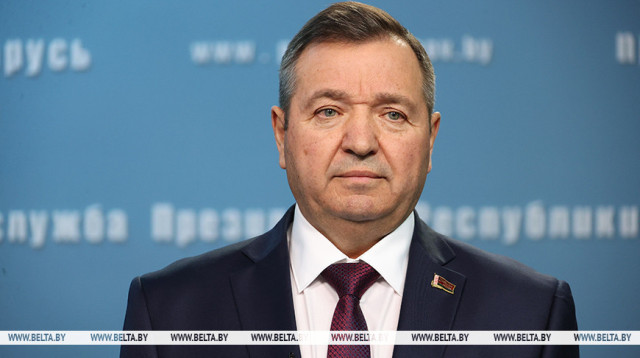Over the course of seven years Belarus reduced the import of mineral resources by six times. Belarusian Natural Resources and Environmental Protection Minister Andrei Khudyk mentioned the figure at a government conference hosted by Belarus President Aleksandr Lukashenko on 12 March, BelTA has learned.
Andrei Khudyk said: “On the whole, in 2023 the output of the mining industry totaled 104.3% as against 2022. The import of mineral raw materials keeps steadily declining from 6.9 million tonnes in 2017 to 1.150 million tonnes in 2023.”
Nevertheless, Belarus has to import some raw materials since the relevant deposits have not been discovered in the country or they are difficult and costly to recover due to geological conditions.
On the whole, the country has sufficient resources to satisfy the economy. There are significant reserves for increasing extraction and production.
Belarus ranks 21st in Europe in terms of the extraction of raw materials, 2nd in the world in terms of peat extraction, 3rd in the world in terms of potassium salt extraction, and 29th in terms of mineral salt extraction. A total of over 50 kinds of mineral resources have been discovered in the country.
The minister admitted that the existing potential has not been fully utilized. The president pointed it out during the conference as well. He gave instructions to establish unified control over the development of mineral deposits. For instance, road construction workers need sand. Civil engineering companies need road metal. Energy companies need peat. But it is unclear who evaluates the situation and decides whether it is necessary to extract accompanying mineral resources if, for instance, there is basalt under peat. This is why the Natural Resources and Environmental Protection Ministry has to play an oversight role.
The matter is already being addressed. In late 2022 the Natural Resources and Environmental Protection Ministry was granted additional functions to coordinate the extraction and processing of mineral resources, develop and improve technologies for enriching the extracted resources. Prime Minister Roman Golovchenko explained that now the Natural Resources and Environmental Protection Ministry has to act as a state treasury of mineral resources: “In addition to keeping records, prospecting for them, and making maps it has to see to it that these resources are used commercially.”
The fact that the available technical capacity for extracting domestic mineral raw materials is not fully utilized is another problem. “The blame primarily lies with users of subsurface resources. A temporary situation. Due to sanctions it was necessary to change target markets and logistic chains in 2020-2022. Today the situation is changing for the better. The volume of extraction of mineral resources and naturally the output of products are starting to climb,” Andrei Khudyk said.
Apart from that, new deposits of various mineral resources are being discovered. Their potential for commercial exploitation is being evaluated. A basalt deposit is one of the most important ones. This matter was also discussed during the government conference hosted by the president.
Basalt is used to make mineral wool and sound-insulating materials. This is why the Belarusian civil engineering industry needs it, including from the point of view of import substitution. A final decision on the business plan and the cost of implementing the project has yet to be made. The cost may be significant. “We will work on basalt together with the Architecture and Construction Ministry. I am convinced we will come up with the right decision. Economy is the key. We understand it and keep moving in this direction,” Andrei Khudyk noted.
In his words, the existing calculations indicate that exploiting the deposit is commercially viable. The basalt and tufa deposit Novodvorskoye in Pinsk District, Brest Oblast was mentioned.
The natural resources and environmental protection minister also noted that new enrichment technologies will allow satisfying the domestic demand for glass sand by virtually 100% in 2025. The same kind of work is in progress with regard to clays.
BelTA – News from Belarus
